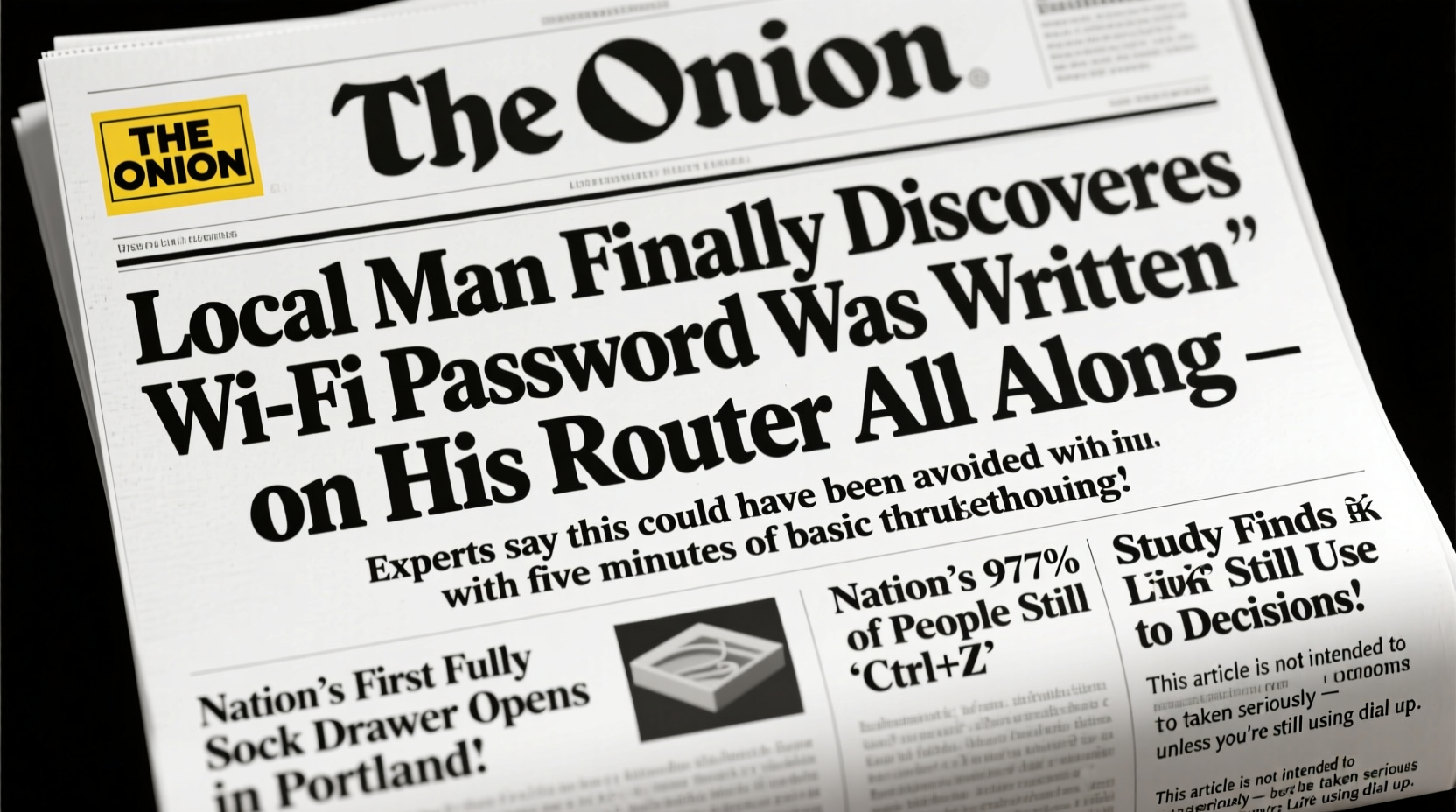The Onion is a satirical news organization founded in 1988, publishing humorous fake news articles designed to parody traditional journalism. It is not a legitimate news source but rather a comedy platform using irony and exaggeration to comment on current events and societal issues.
Many internet users mistakenly share The Onion articles as real news, contributing to misinformation spread. Understanding this distinction is critical for digital media literacy in today's information landscape.
What Exactly Is The Onion Newspaper?
Despite its newspaper-like format, The Onion operates as a comedy publication specializing in satirical content. Founded in Madison, Wisconsin in 1988 by Tim Keck and Christopher Johnson, it began as a weekly print publication before transitioning to digital dominance. The publication's tagline—"America's Finest News Source"—is itself part of the satire.
The Onion employs professional writers who craft articles mimicking traditional news formats while delivering humorous commentary on politics, culture, and everyday life. Their content follows journalistic conventions including headlines, bylines, and article structures, which contributes to occasional confusion among readers unfamiliar with the publication's satirical nature.
| Feature | The Onion (Satire) | Traditional News |
|---|---|---|
| Purpose | Entertainment through humor and social commentary | Informing the public about factual events |
| Content Accuracy | Intentionally fictional and exaggerated | Fact-checked and verified |
| Author Credentials | Comedians and satirists | Journalists with reporting experience |
| Corrections Policy | Rarely issues corrections (fictional nature) | Regular corrections for factual errors |
Evolution of The Onion: From Campus Paper to Digital Satire Powerhouse
The Onion's journey demonstrates how satire has adapted to changing media landscapes. This timeline reveals key milestones in its development:
- 1988: Founded as a weekly print publication at the University of Wisconsin-Madison
- 1996: Expanded nationally with print editions in multiple cities
- 1999: Launched TheOnion.com, pioneering online satire
- 2007: Discontinued most print editions to focus on digital content
- 2013: Acquired by Univision Communications
- 2019: Purchased by Global Tetrahedron, a company owned by The Onion's writers and editors
- Present: Publishes multiple articles daily across digital platforms with significant social media presence
According to the News Literacy Project, a nonpartisan education nonprofit, The Onion represents one of the most successful examples of political satire in modern media history. Their consistent format that mimics legitimate news outlets has occasionally led to real-world consequences when readers mistake satirical content for factual reporting.

How The Onion Creates Its Satirical Content
The writing process at The Onion follows journalistic conventions while deliberately crafting fictional narratives. Writers research current events thoroughly before applying comedic exaggeration and irony. The publication maintains strict editorial standards for its satire, with multiple layers of review to ensure content meets their quality benchmarks.
Unlike misinformation creators who deliberately spread falsehoods to deceive, The Onion's team clearly intends their work to be understood as humor. They've even implemented measures to prevent confusion, including:
- Adding "This is a work of satire" disclaimers on social media shares
- Creating a dedicated FAQ page explaining their satirical nature
- Issuing public statements when articles are widely misinterpreted
Why Distinguishing Satire Matters for Media Literacy
A 2022 study published in the Pew Research Center found that approximately 23% of social media users have shared satirical news articles without realizing they were fake. This confusion contributes to the broader misinformation ecosystem, where false content spreads rapidly before corrections can catch up.
Media literacy experts emphasize several contextual boundaries that help identify satirical content:
- Source evaluation: Check the publication's reputation and history
- Content analysis: Look for exaggerated claims or absurd premises
- Domain verification: Satire sites often use unconventional domain names
- Cross-referencing: Verify stories with multiple reputable sources
Understanding these boundaries helps prevent the accidental spread of misinformation while still appreciating satire's valuable role in social commentary. The key distinction lies in intent—satire aims to entertain and provoke thought through humor, while misinformation seeks to deceive for political, financial, or ideological gain.
Practical Guide to Identifying Satirical News Content
When encountering potentially satirical content, follow these verification steps before sharing:
- Check the source: Research the publication's background and mission statement
- Examine the domain: Satire sites often use domains that mimic legitimate news outlets
- Read beyond the headline: Satirical articles often contain absurd details upon closer reading
- Look for disclaimers: Reputable satire sites typically identify their content as humorous
- Verify with fact-checking sites: Consult Snopes, FactCheck.org, or similar resources
Developing these habits protects against unintentionally spreading misinformation while still allowing enjoyment of quality satire. Remember that legitimate news organizations maintain correction policies and accountability mechanisms that satirical publications don't need to uphold.
The Cultural Impact of The Onion
Despite its fictional nature, The Onion has significantly influenced political discourse and media criticism. Many journalists and political commentators credit The Onion with highlighting media biases and journalistic shortcomings through its exaggerated parodies.
The publication has received multiple awards, including three Peabody Awards, recognizing its contribution to media and culture. Its success demonstrates the public's appetite for critical commentary delivered through humor—a testament to satire's enduring power in democratic societies.











 浙公网安备
33010002000092号
浙公网安备
33010002000092号 浙B2-20120091-4
浙B2-20120091-4